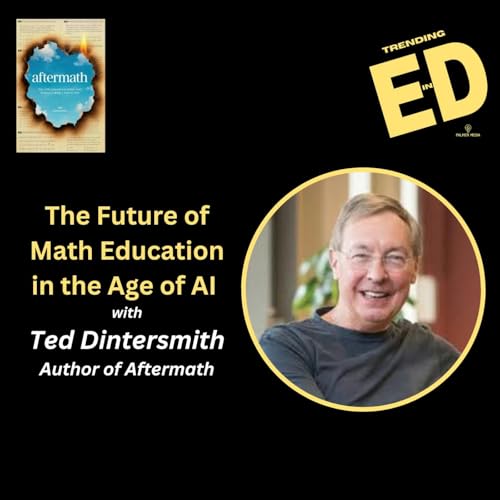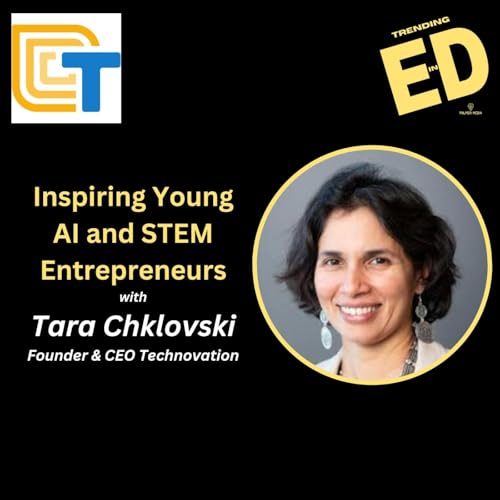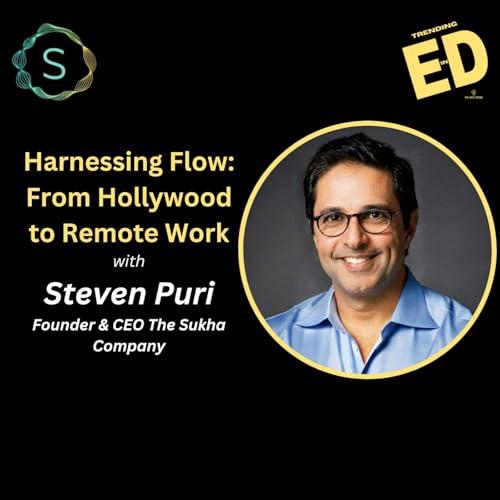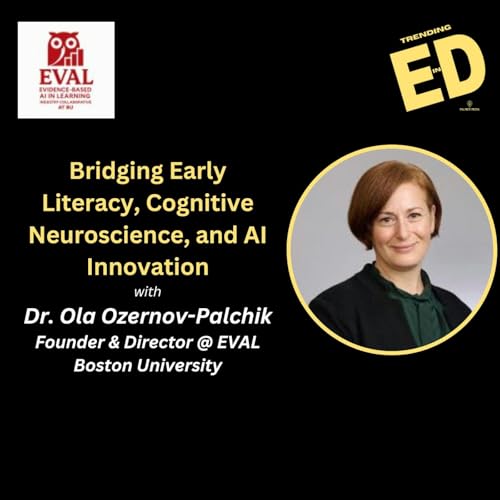What if everything we’ve been told about math education is backwards? In this episode of Trending in Education, Mike Palmer is joined by Ted Dintersmith,venture capitalist, filmmaker, and author of the upcoming book Aftermath: The Life-Changing Math That Schools Won't Teach You to discuss why our schools are still teaching low-level math mechanics that phones and AI already do perfectly. You can learn more about Ted's work at What Schools Could Be. Ted shares his journey from the world of high-tech innovation to becoming a "code red" alarmed citizen advocate for radical school change. We dive into how high-stakes exams are inadvertently training students to compete with AI in areas where computers are unbeatable, while ignoring the creative and conceptual math, like probability, decision-making frameworks, and estimation, that actually shapes lives. From Moneyball statistics to the dangers of misinterpreting healthcare data, Ted explains why math should be a tool for empowerment rather than a metric for punishment. We also take a "lightning round" trip through Ted’s prolific career, including his work with the late Sir Ken Robinson and his influential documentaries Most Likely to Succeed and Multiple Choice. Whether you’re a parent trying to preserve your child’s curiosity or an educator looking for a more relevant curriculum, this conversation offers a refreshing and urgent blueprint for what school could be. 📉💡 Subscribe to Trending in Ed wherever you get your podcasts to stay ahead of the curve in the world of learning. 🔔 Time Stamps 00:00 - Introduction: Why Math Should Turn You On 🎙️ 00:41 - Ted’s Origin Story: From Carpentry to Venture Capital 02:18 - The Middle School Note That Changed Everything 04:02 - Making the Film "Most Likely to Succeed" 05:14 - Why AI Makes Most School Math Obsolete 07:03 - Previewing "Aftermath": Math for Decision Making 11:00 - The Dunning-Kruger Effect and Iraqi War Predictions 12:45 - Why 90% of Doctors Misunderstand Test Results 🏥 15:35 - Teaching High Schoolers Decision Frameworks 18:14 - The Art of Mathematical Modeling 21:30 - Math as a Tool for Ranking, Sorting, and Punishing 25:15 - Can We Trust Economic Numbers? (The Estimation Problem) 28:43 - Moneyball and the Power of Creative Statistics ⚾ 34:10 - Lightning Round: Sir Ken Robinson and New Documentaries 39:53 - Advice for Families: Preserving Curiosity and Audacity 41:43 - Closing Thoughts and Where to Find Ted’s Work
Show More
Show Less
 43 mins
43 mins 50 mins
50 mins Feb 6 202646 mins
Feb 6 202646 mins Jan 30 202637 mins
Jan 30 202637 mins Jan 27 202644 mins
Jan 27 202644 mins 32 mins
32 mins 46 mins
46 mins 41 mins
41 mins
